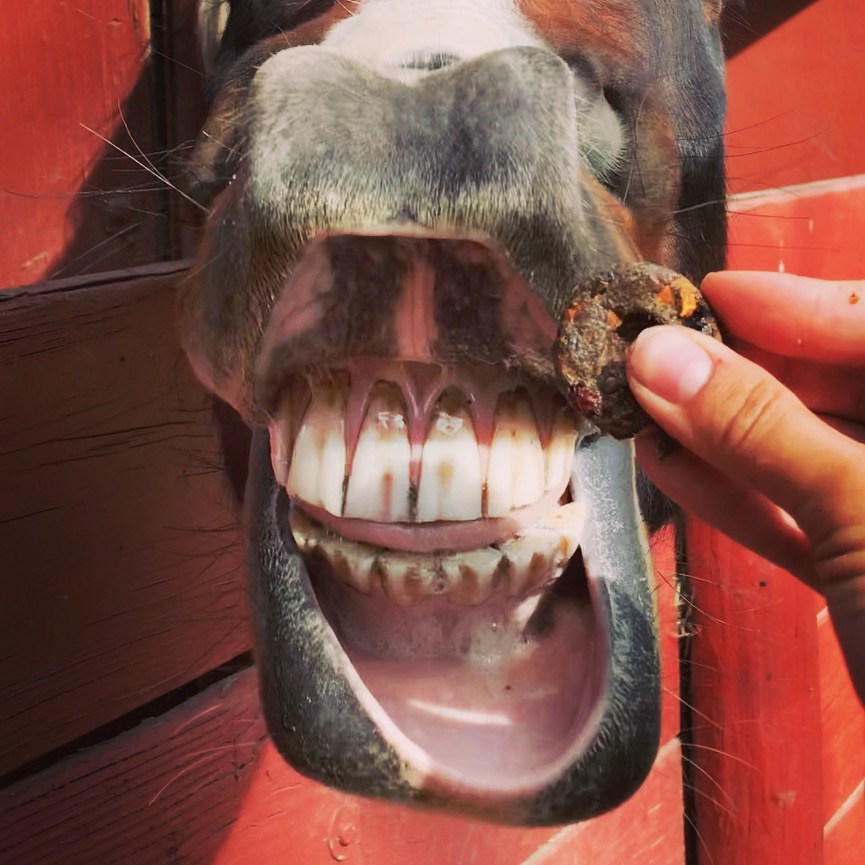What Your Horse's Dull Coat is Trying to Tell You
- Twenty Four Carrots

- Jan 9, 2023
- 4 min read
Updated: Jul 9, 2023

We are in the middle of winter with snow storms across the country. Unless body clipped most horses are rocking some extra hair to protect them from the winter elements. However, a horse’s coat is so much more than a blanket of hair that protects the skin from the harsh conditions of winter or the pesky insects who make their appearance throughout the rest of the year, it is also a mirror that reflects the inner health of the horse. A horse who is healthy will display a rich and lustrous coat (yes, even in the winter) whereas a dull or coarse coat may be a telltale sign of an underlying issue. Let’s take a closer look at what can cause coats to dull and how to go about addressing a less than luminous shine.
How can hair reflect health? (Horse dull Coat)
Vital information about the health of a horse can be gleaned from the quality of their coat. Hair reflects the health of the horse as the follicle, which the hair grows from, is made up of active tissues that respond to positive and negative influences which affect the rest of a horse’s organs and their overall health. The hair is such an in depth reflection of the makeup of the horse that it can be analyzed for DNA testing, hereditary diseases and is even viewed as a source for future genetic manipulation (including the cloning of horses!).
What might cause a horse’s coat to become dull, brittle or lackluster?
There are many reasons a horse’s coat may not be as radiant as it could be. That being said, the below are some of the most common culprits of a dull coat. There could be one at play or a combination of factors hindering the coat from reaching its full potential.
Nutritional deficiencies: Complete nutrition is vital to a radiant coat. Especially important nutrients for coat health are amino acids and healthy omegas.
Selenium toxicosis: As opposed to a nutritional deficiency, an overload of a nutrient can also be detrimental. Selenium being over supplemented is quite common and can present in a number of ways including a poor hair coat.
Parasite infestation: Parasites live off of their host and as such can pull nutrients from their host as well. A heavy parasite infestation can be seen in many ways, depending on the parasite, but oftentimes a dull, scraggly or rough coat is indication of a potential infestation on top of a bevy of other symptoms.
Sweat exposure: Sweat contains sodium which, if left to dry on the coat, can cause the coat to dull or “bleach” out. Sweat as a cause of a dull coat is usually easy to spot as it’s clear the coat is affected in areas the horse sweats most i.e. under the saddle, behind the elbows or across the chest.
Glandular issues: Pituitary gland issues are more common than one might think, especially in aging mares. Glandular issues may present in the coat through the coat appearing coarse, dry, brittle and/or excessively growing.
Toxic overload: Horses are exposed to a variety of toxins quite frequently and their body's natural cleansing mechanisms can become overwhelmed leading to a toxic build-up. Toxins can be found in feeds, fly sprays, dewormers, the air, grooming products and medications among other places.
Fungal infection: If the coat appears to be clumping or patchy beyond what would be considered a normal shed, there may be a fungal infection at hand. Fungal infections are especially common in rainy or humid environments.
How do I go about finding the cause of a dull coat?
As explained above, there are a variety of factors that can lead to a dull coat. In some cases, there may be more than one issue that needs addressing. It is always best practice to consult with your veterinarian or nutritionist when making changes to your horse’s routine or diet as well as to rule out potential illness as a cause of a dull coat. However, some easy steps you can take on your own are:
- Analyze your feeding routine for deficiencies or overloads (feel free to email us for custom advice at: cookies@twentyfourc.com)
- Perform fecal tests to keep tabs on parasitic infestations (tips on how to master deworming found here)
- Detox the liver after stress, medications or deworming to aid in the removal of unwanted toxins from the system. (Find the best nutritionist backed detox supplement here)
- Feed a balanced and bioavailable omega supplement to support a radiantly healthy skin, coat, hooves, mane and tail. (Find the ultimate omega supplement here)
- Groom frequently and gently to spread the skin’s natural oils across the coat.
It is true that when it comes to horses, we should always aim for a beautiful, shiny and smooth coat not simply because it looks pretty but because it can also be a confirmation that your horse is healthy from the inside out. By practicing proper grooming, a balanced diet, and mindfulness, we can address many of these issues as soon as they arrive or even prevent them altogether. Your horse's best version of themselves may be only a few simple changes away!

To find out which of our products suit your horse best click the button below!



Comments